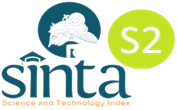A Empowering Learning Through Innovative Worksheets: A Search, Solve, Create and Share Approach to Independent Practicum on Growth and Development Materials
DOI:
https://doi.org/10.33477/bs.v14i2.7880Abstract
This study aimed to develop LKPD based on Search, Solve, Create, and Share using the ADDIE model for learning materials on the growth and development of living things as well as assess the validity, viability, and efficacy of LKPD based on Search, Solve, Create, and Share for learning materials on the growth and development of living things. The research method used in this study was research and development, which refers to the ADDIE development model, which has five stages: (1) analysis, (2) design, (3) development, (4) implementation, and (5) evaluation. The data collection technique in this study was validity testing using validation sheets, practicality testing using student response questionnaires and educator response questionnaires, and effectiveness testing using student learning outcomes tests. The trial yielded the following findings: Firstly, the ADDIE development model was used to create the LKPD based on the search, solve, create, and share approach and data was collected during this process. Secondly, the LKPD based on the same approach was found to be highly valid, with an average value of 3.65. Thirdly, the level of practicality of the LKPD was also found to be high, with an average value of 3.4. Finally, the effectiveness rate of the LKPD was determined to be 89%, indicating that it is highly effective for use in the learning process. In conclusion, the research results demonstrate that the LKPD based on the search, solve, create, and share approach is valid, practical, effective, and thus appropriate for use.
Keywords: LKPD, Search, Solve, Create, And Share
Downloads
Published
Issue
Section
License

This work is licensed under a Creative Commons Attribution-NonCommercial 4.0 International License.
Authors who publish with this journal agree to the following terms: Authors retain copyright and grant the journal right of first publication with the work simultaneously licensed under a Creative Commons Attribution License that allows others to share the work with an acknowledgement of the work's authorship and initial publication in this journal. Authors are able to enter into separate, additional contractual arrangements for the non-exclusive distribution of the journal's published version of the work (e.g., post it to an institutional repository or publish it in a book), with an acknowledgement of its initial publication in this journal. Authors are permitted and encouraged to post their work online (e.g., in institutional repositories or on their website) prior to and during the submission process, as it can lead to productive exchanges, as well as earlier and greater citation of published work.














